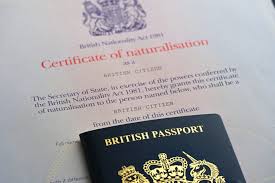Understanding Refugee British Citizenship: Pathways and Challenges

Introduction
The topic of refugee British citizenship is increasingly important as the UK continues to face humanitarian crises and ongoing migration issues. Understanding the pathways to citizenship for refugees not only impacts individual lives but also reflects the UK’s commitment to international humanitarian principles. As global displacement levels rise, it is vital to explore the legal frameworks and challenges refugees face in settling and achieving citizenship in the UK.
Pathways to British Citizenship for Refugees
As per the UK government’s guidelines, refugees can apply for British citizenship after five years of being granted refugee status or humanitarian protection. One of the key requirements is that they must have settled status in the UK, which can typically be obtained after one year of residing in the country with refugee status. This legal status allows refugees to live, work, and study in the UK without restriction.
During the application process, refugees must demonstrate their knowledge of the English language and pass the Life in the UK test, which assesses their understanding of British customs, history, and society. It’s important to note that refugees must also prove that they meet the residency requirements and have not committed any crimes that could affect their application.
Recent Developments and Events
Recent discussions and legislative changes have modified certain aspects of the asylum process in the UK, which consequently impact refugees’ pathways to citizenship. For instance, the Nationality and Borders Act 2022 introduced new measures intended to streamline the asylum process, but critics argue that it may complicate access to citizenship by imposing stricter rules.
Moreover, numerous advocacy groups, including Refugee Council and Amnesty International, continue to highlight cases where refugees face barriers to gaining UK citizenship. Factors such as the high cost of application fees, complex legal requirements, and a lack of accessible guidance contribute to these challenges.
Conclusion
In conclusion, while refugees in the UK have defined pathways to British citizenship, the journey is often fraught with challenges that can prolong their wait for citizenship. As global geopolitical conditions continue to evolve, the UK government’s policies will likely adapt as well, affecting the future landscape of refugee rights and integration. Advocates contend that improving access to these citizenship pathways not only benefits refugees but enriches British society by fostering diversity and resilience.








